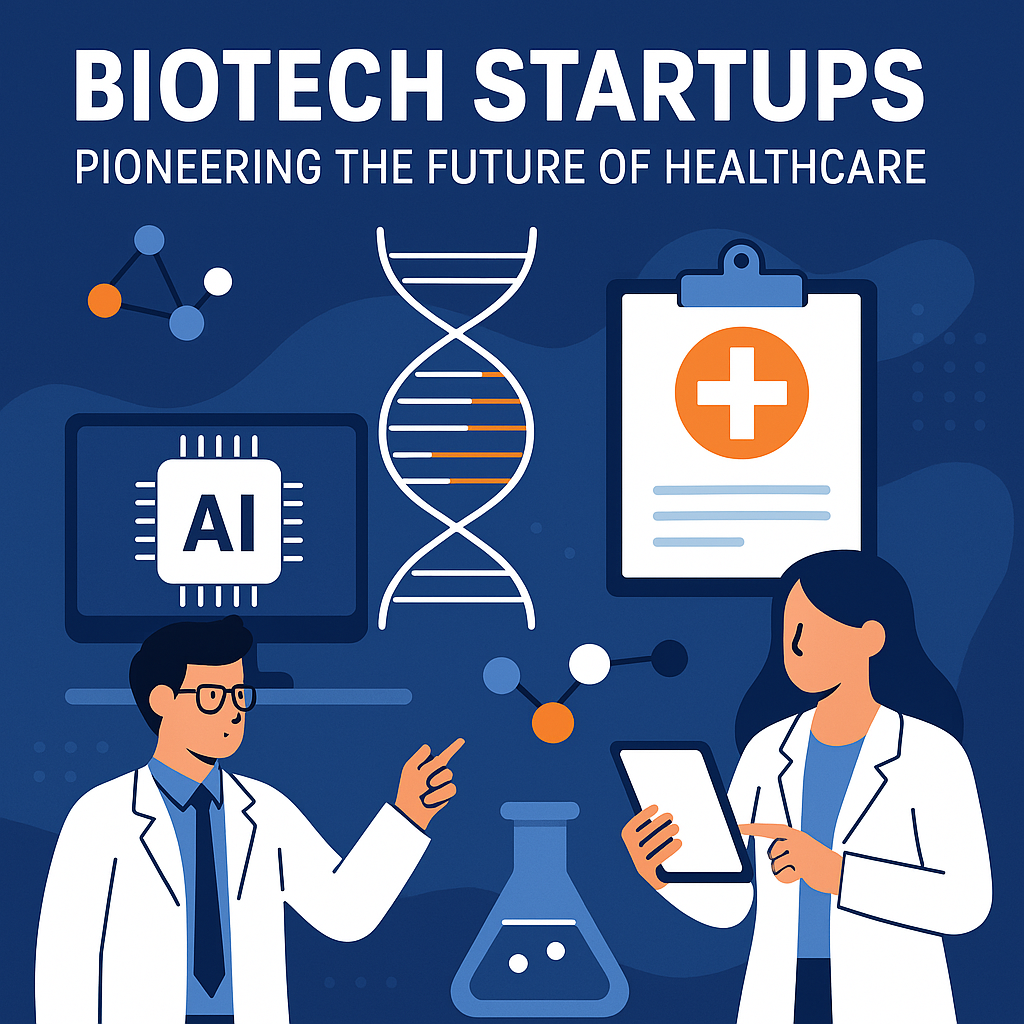Biotech startups are revolutionizing healthcare through rapid innovation and technological convergence. You’ll find these companies leveraging AI, mRNA technology, and CRISPR to compress drug development timelines from years to months. They’re attracting significant venture capital while building collaborative ecosystems that connect researchers, investors, and established pharmaceutical companies. Despite regulatory hurdles, these pioneers continue developing personalized medicine and precision therapies that transform patient outcomes. The following sections explore how these disruptive entrepreneurs are reshaping medicine’s future.
The Disruptive Impact of Biotech Entrepreneurship
While traditional pharmaceutical development continues at its measured pace, biotech startups have catalyzed a paradigm shift in healthcare innovation through their agile approach to solving complex medical challenges.
You’re witnessing a revolution where these nimble companies leverage AI and machine learning to compress drug discovery timelines from years to months.
The surge in venture capital funding enables biotech startups to pursue high-risk, high-reward research that addresses previously untreatable conditions.
By focusing on personalized medicine and genetic profiling, they’re creating therapies tailored to individual patients rather than one-size-fits-all solutions.
Strategic collaborations between startups and established pharmaceutical giants are accelerating breakthrough treatments, combining entrepreneurial vision with market reach.
This symbiotic ecosystem is transforming healthcare delivery, particularly for chronic diseases affecting aging populations—ultimately democratizing access to cutting-edge medical solutions.
Cutting-Edge Technologies Transforming Patient Care
Revolutionary technologies pioneered by biotech startups are now reaching the patient bedside, transforming treatment paradigms and care delivery models.
You’ll find these innovations dramatically reshaping healthcare through AI-powered drug discovery platforms that slash development timelines while increasing success rates.
The mRNA revolution extends beyond vaccines, creating personalized medicine approaches tailored to your genetic profile.
Meanwhile, CRISPR and advanced gene writing technologies offer unprecedented precision in correcting genetic disorders at their source.
Digital twin technologies now enable virtual testing of treatments before they’re administered, predicting your body’s response with remarkable accuracy.
These cutting-edge technologies converge to create truly personalized medicine—where treatments aren’t just selected for you but designed specifically for your unique genetic makeup, promising better outcomes with fewer side effects.
Investment Trends Fueling Biotech Innovation
Three major investment forces are reshaping the biotech funding landscape, creating unprecedented opportunities for healthcare innovation. Venture capital firms are strategically targeting early-stage biotech startups, offsetting high R&D costs while fostering pioneering research despite regulatory complexities.
You’ll find government initiatives like Horizon Europe providing essential supplementary funding, effectively shortening development timelines for revolutionary healthcare solutions. This support ecosystem has catalyzed the emergence of biotech unicorns valued beyond $1 billion—tangible evidence of investor confidence in the sector’s transformative potential.
Late-stage funding rounds have become pivotal for scaling operations, while AI and machine learning integration attracts substantial investment capital.
These investment trends are accelerating biotech innovation by providing the financial foundation necessary for startups to develop next-generation therapeutics and redefine healthcare delivery models.
Collaborative Ecosystems Driving Scientific Breakthroughs
Collaborative ecosystems represent the backbone of today’s most significant scientific breakthroughs in biotechnology. You’ll find these dynamic networks connecting research institutions, biotech start-ups, and established industry players in powerful synergistic relationships that amplify innovation potential exponentially.
When you examine initiatives like EIT Health, you’ll observe how they catalyze advancement by providing essential funding, mentorship, and network access to emerging companies.
The integration of AI and machine learning within these collaborative frameworks revolutionizes drug discovery, dramatically reducing traditional timelines and costs.
These strategic partnerships enable biotech start-ups to share vital resources and expertise, multiplying research capabilities and breakthrough potential.
The results are transformative—personalized medicine, gene editing innovations, and novel therapeutic approaches that wouldn’t be possible in isolation, ultimately revolutionizing patient care through collective scientific endeavor.
Navigating Regulatory Challenges in the Biotech Landscape
While innovation drives biotech progress, regulatory hurdles often determine which breakthrough therapies reach patients.
You’ll encounter a complex global landscape where approval timelines exceed 10 years and development costs reach billions.
FDA and EMA requirements demand exhaustive clinical evidence, creating formidable barriers for resource-constrained biotech startups. Your success hinges on mastering these regulatory challenges while maintaining forward momentum.
Strategic partnerships offer a viable pathway, allowing you to leverage external expertise and shared resources for maneuvering compliance requirements.
The evolving regulatory environment, including recent accelerated approval pathway modifications, creates new opportunities amid complexity.
Your ability to anticipate regulatory shifts and build flexibility into development programs will ultimately determine how quickly your innovations transform from laboratory breakthroughs to life-changing therapies in patients’ hands.
Frequently Asked Questions
How Do Biotech Startups Balance Scientific Integrity With Investor Expectations?
You balance transparency with vision, credibility with ambition. You’ll need to clearly communicate research timelines while leveraging data-driven milestones. Establish investor relationships where scientific rigor isn’t compromised by financial pressures or accelerated development cycles.
What Career Paths Exist for Scientists Outside Traditional Research Roles?
You’ll find diverse pathways as a scientist beyond traditional research: biotech entrepreneurship, regulatory affairs, science communication, data science, consulting, venture capital, patent law, and clinical development all leverage your technical expertise in transformative ways.
How Are Biotech Startups Addressing Equity in Clinical Trial Representation?
You’ll find biotech startups implementing AI-driven recruitment strategies, establishing community partnerships, and leveraging decentralized trial designs to break demographic barriers, ensuring your future treatments reflect true population diversity and genetic variability.
When Should Founders Consider Licensing Versus Developing Proprietary Technologies?
You’ll want to license when speed-to-market is critical or development costs are prohibitive. Develop proprietary tech when it’s your core competitive advantage and you’ve secured adequate funding for extended R&D timelines.
How Do Failed Biotech Ventures Contribute to the Industry’s Knowledge Base?
Failed ventures contribute pivotal data from unsuccessful clinical trials, invaluable R&D methodologies, and regulatory navigation insights. You’ll find these lessons accelerate future innovation cycles, reducing redundant failures and catalyzing breakthrough therapeutic approaches across the ecosystem.
Conclusion
You’re standing at the frontier of a medical renaissance where biotech startups are shattering the glass ceiling of traditional healthcare. As these innovators forge ahead, they’re not just developing treatments; they’re reengineering the very fabric of medicine. Your future health journey will be transformed by today’s breakthrough technologies that seamlessly integrate biology and computation to deliver precision therapies once thought impossible.

